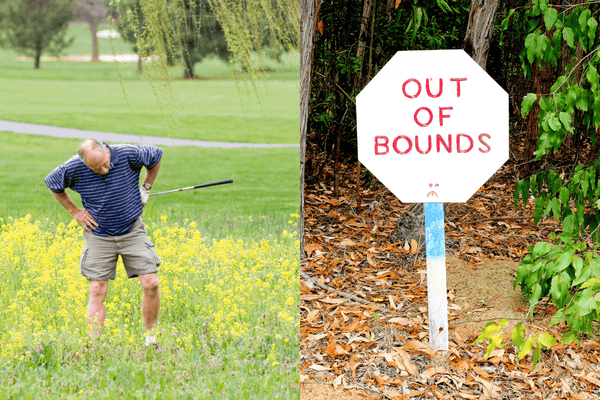As golfers, we often focus intently on perfecting our swing mechanics, fine-tuning our equipment, and honing our physical skills. However, the true secret to unlocking our full potential on the golf course lies not just in our physical abilities, but in the strength of our mental game. The mental aspects of the sport – from maintaining focus and managing stress to building confidence and resilience – can make all the difference between a good round and a great one.
At Golfista, we believe that the mental game is just as important as the physical one. That's why we're excited to share some of the key strategies and techniques that can help golfers of all levels master the mental side of the sport.
Defining the Mental Game
The mental game in golf encompasses a wide range of psychological factors that can influence our performance on the course. This includes our ability to stay focused and present, manage stress and anxiety, maintain confidence, and approach the game with a growth mindset.
When we're in the right mental state, we're able to make clear-headed decisions, execute our shots with precision, and bounce back from setbacks with resilience. On the other hand, when our mental game is off, we can find ourselves struggling with negative thoughts, self-doubt, and a lack of focus – all of which can have a detrimental impact on our scores.
Maintaining Focus on the Course
One of the most critical aspects of the mental game is the ability to stay focused and present on the course. Golf is a sport that requires intense concentration, as even the slightest lapse in attention can lead to a costly mistake.
To help golfers maintain focus, we recommend techniques like deep breathing exercises, mindfulness practices, and visualization. By learning to quiet the mind and stay grounded in the present moment, you can better tune out distractions and keep your attention firmly on the task at hand.
It's also important to be aware of the types of thoughts that can derail your focus. Negative self-talk, worries about the future, and dwelling on past mistakes can all pull your attention away from the shot you're about to execute. By recognizing these thought patterns and actively working to replace them with more positive, constructive ones, you can train your mind to stay focused and present.
Managing Stress and Anxiety
Golf can be a high-pressure sport, with the potential for significant emotional and psychological stress. Whether it's the anxiety of a big tournament, the frustration of a bad round, or the nerves of a crucial putt, learning to manage these feelings is crucial for maintaining peak performance.
One effective strategy for managing stress and anxiety is through the use of relaxation techniques, such as deep breathing, progressive muscle relaxation, and visualization. By taking the time to calm the mind and body, you can better regulate your emotional state and prevent it from interfering with your ability to execute your shots.
It's also important to be mindful of the way you talk to yourself. Negative self-talk and catastrophic thinking can amplify feelings of stress and anxiety, while positive self-talk and reframing can help you maintain a more constructive and resilient mindset.
Building Confidence and Resilience
Confidence is a critical component of the mental game, as it allows us to trust in our abilities and approach each shot with a sense of self-assurance. However, building and maintaining confidence can be a challenge, especially in the face of setbacks and disappointments.
One way to cultivate confidence is through the use of visualization and positive affirmations. By picturing yourself executing your shots with precision and success, and by repeating empowering statements about your abilities, you can train your mind to believe in your potential.
It's also important to celebrate your small victories, no matter how seemingly insignificant. Acknowledging and taking pride in your progress, even if it's just a well-executed chip or a successful recovery shot, can help reinforce your sense of confidence and resilience.
Embracing a Growth Mindset
Finally, the mental game of golf is closely tied to our overall approach to the sport. Those who embrace a growth mindset – a belief that their abilities can be developed through dedication and hard work – tend to be more resilient, adaptable, and open to learning from their mistakes.
By contrast, a fixed mindset – the belief that our abilities are set in stone – can lead to a fear of failure, a reluctance to take risks, and a tendency to get stuck in negative thought patterns. To cultivate a growth mindset, it's important to view each round, each shot, and each challenge as an opportunity for learning and improvement, rather than a test of your inherent abilities.
Putting it All Together
Mastering the mental game of golf is a lifelong journey, one that requires consistent practice, self-awareness, and a willingness to experiment with different strategies and techniques. But by focusing on the key elements of focus, stress management, confidence-building, and a growth mindset, golfers of all levels can unlock their full potential and enjoy the game to the fullest.
At Golfista, we're committed to supporting our customers in this journey. Whether it's through our carefully curated selection of high-quality golf apparel, or our ongoing educational resources and community-building initiatives, we're here to help you elevate your mental game and take your golf experience to new heights.
So, the next time you step up to the tee, remember to bring not just your physical skills, but your mental fortitude as well. With the right strategies and a commitment to continuous improvement, you can unlock a whole new level of performance and enjoyment on the golf course.












